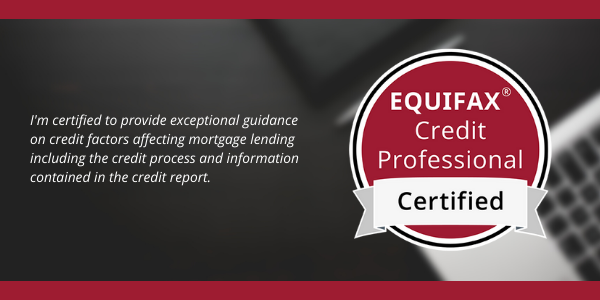AGENT LICENSE ID
137465

Lynn McLellan, BA
Mortgage Professional
Office:
Phone:
Email:
Address:
404- 1688 152nd Street, Surrey, British Columbia, V4A 4N2
BROWSE
PARTNERS
It PAYS to shop around.
Many Canadian homeowners pay too much for their homes because they are not getting the best mortgage financing available in the market.
The mortgage process can be intimidating for homeowners, and some financial institutions don't make the process any easier.
But I’m here to help!
I’m a VERICO Mortgage Advisor and I’m an independent, unbiased, expert, here to help you move into a home you love.
I have access to mortgage products from over forty lenders at my fingertips and I work with you to determine the best product that will fit your immediate financial needs and future goals.
VERICO mortgage specialists are Canada’s Trusted Experts who will be with you through the life of your mortgage.
I save you money by sourcing the best products at the best rates – not only on your first mortgage but through every subsequent renewal. So whether you're buying a home, renewing your mortgage, refinancing, renovating, investing, or consolidating your debts — I’m the VERICO Mortgage Advisor who can help you get the right financing, from the right lender, at the right rate.
Many Canadian homeowners pay too much for their homes because they are not getting the best mortgage financing available in the market.
The mortgage process can be intimidating for homeowners, and some financial institutions don't make the process any easier.
But I’m here to help!
I’m a VERICO Mortgage Advisor and I’m an independent, unbiased, expert, here to help you move into a home you love.
I have access to mortgage products from over forty lenders at my fingertips and I work with you to determine the best product that will fit your immediate financial needs and future goals.
VERICO mortgage specialists are Canada’s Trusted Experts who will be with you through the life of your mortgage.
I save you money by sourcing the best products at the best rates – not only on your first mortgage but through every subsequent renewal. So whether you're buying a home, renewing your mortgage, refinancing, renovating, investing, or consolidating your debts — I’m the VERICO Mortgage Advisor who can help you get the right financing, from the right lender, at the right rate.
BLOG / NEWS Updates
Scotiabank: Canadian Home Sales (January 2026): Housing News Flash
CANADA HOUSING MARKET: NATIONAL HOUSING CONDITIONS CONTINUE TO COOL
National unit sales significantly fell from December to January. This weakening in sales combined with a sharp rise in new listings contributed to lower the sales-to-new listings ratio to near the lower bound of the estimated range for balanced conditions. However, unusually inclement weather in Ontario centres contributed to amplify the slowdown in national sales in January.
National sales (in units) posted a -5.8% (sa) drop from December to January. They weakened in each of the last 3 months, posting a cumulative -10.2% decline (with sa figures) since October 2025. In January, they were 16.2% below their level in November 2024, the period when trade tensions started to emerge as the incoming U.S. administration announced its intention to increase tariffs on imports from key economic partners. Compared to the same month in 2025, national sales were 16.2% (nsa) lower in January. Following 4 months of monthly declines, new listings rose sharply in January (7.3% m/m, sa) but fell 6.2% (nsa) from the same month in 2025.
With this significant decline in sales and the sharp rise in new listings from December to January, the sales-to-new listings ratio fell from 51.3% (sa) in December to 45% in January, a 6.3 percentage points (pps) drop. This indicator of housing market conditions now stands very close to our 44.6% estimate for the lower bound of the balanced conditions range. This indicator declined by 4.1 pps (from sa figures) since January of 2025.
https://www.scotiabank.com/ca/en/about/economics/economics-publications/post.other-publications.housing.housing-news-flash.february-18--2026.html
Statistics Canada: Why do people move within Canada? A study on the reasons for internal migration and mobility using the Canadian Housing Survey
Highlights
According to the 2022 Canadian Housing Survey, one-third (33.3%) of households reported moving to their current residence within the past five years.
Upgrading to a larger or better-quality dwelling was the most common reason reported by households that moved within the past five years, cited by one in four moving households (25.3%).
Among households that moved across provinces, employment (42.5%) was the reason cited most often, followed by wanting to be closer to family (27.6%). In contrast, 4.5% of these households reported moving to upgrade to a larger or better-quality dwelling.
Movements within the same province but to a different municipality showed patterns that resembled aspects of interprovincial migrations and moves within the same municipality, further supporting the relevance of distance in a households decision to move.
Reasons for moving also varied by age of the reference person, and further differences emerged when distinguishing intraprovincial and interprovincial moves.
Findings suggest that in addition to the motivation to improve housing conditions and quality of life, various life events and stages of life can influence a households decision to move.
https://www150.statcan.gc.ca/n1/pub/91f0015m/91f0015m2026001-eng.htm
NBC Housing Market Monitor: Widespread decline in home sales in January
Home sales fell 5.8% from December to January, marking the third consecutive monthly decline and the largest drop since February 2025 when U.S. tariffs were announced.
New listings jumped 7.3% from December to January, their first increase in five months and the largest monthly increase since January 2025.
Active listings increased by only 0.4% during the month due to a higher number of cancelled listings, likely due to the lack of momentum in the market.
Market conditions eased during the month but remained balanced at the national level, which largely reflects soft conditions in Ontario and B.C., while markets in all other provinces continue to favour sellers.
Housing starts dropped by 42.6K from 280.7K in December to 238.0K in January (seasonally adjusted and annualized), a print well below the consensus calling for 262.5K. Starts decreased in urban areas (-50.2K to 218.2K), while they increased in rural areas (+7.6K to 19.9K). In urban centres, the drop stemmed from the multi-unit segment (-51.9K to 177.0K), while the single-detached segment increased slightly (+1.7K to 41.2K). Decreases in housing starts were seen in Montreal (-11.5K to 17.6K), Toronto (-1.3K to 28.4K), and Vancouver (-0.4K to 33.5K), while Calgary (+10.2K to 25.6K) registered an increase.
The TeranetNational Bank Composite National House Price Index declined by 0.4% from December to January after seasonal adjustment. Seven of the eleven CMAs included in the index recorded declines: Ottawa-Gatineau (-2.4%), Winnipeg (-1.0%), Toronto (-0.9%), Edmonton (-0.9%), Vancouver (-0.7%), Hamilton (-0.5%), and Victoria (-0.1%). Conversely, prices rose in Halifax (+2.0%), Quebec City (+1.6%), Montreal (+1.4%) and Calgary (+0.7%).
https://www.nbc.ca/content/dam/bnc/taux-analyses/analyse-eco/logement/economic-news-resale-market.pdf





























